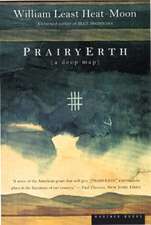Fallen Guidon
Autor Edwin Adams Davisen Limba Engleză Paperback – 28 feb 1995
General Jo Shelby had led the Missouri Cavalry Division through battles at Westport, Mine Creek, Newtonia, and elsewhere. Shelby's men were all recruits rather than draftees, fiercely loyal, and they followed the code of chivalry to a degree unusual even in the old South. While preparing to march against the Federals at Little Rock, they heard of Lee's surrender. In a meeting at Marshall, Texas, Shelby announced, "We will stand together, we will keep our organization, our arms, our discipline, our hatred of oppression . . . that this Missouri Cavalry Division preferred exile to submission--death to dishonor." Having heard that the U.S. government wanted the Habsburg emperor Maximilian out of Mexico and that Lincoln liked the idea of ex-Confederates joining forces with Benito Juarez to oust Maximilian and his French military forces, Shelby formed his plan. Shelby believed he had found a way to save their honor and at the same time spread their lost southern empire to a new land, where riches and glory surely awaited them.
Shelby and his men marched through Texas, stopping in Corsicana, Tyler, Waxahachie, Waco, Austin, Houston, and San Antonio, declaring martial law and forcibly quelling local outbreaks of looting and rioting where they found it. At the Rio Grande, in a funereal memorial, they buried their Confederate battle flag in the murky waters before heading into Mexico. Shelby's men did not want to support Benito Juarez's liberal guerrillas, however. Identifying themselves as "imperialists," they wanted to fight gloriously for Emperor Maximilian. In pitched battles against the local Juaristas and isolated guerrillas and bandits, they spilled blood from Piedras Negras to Mexico City and even undertook the chivalrous and bloody rescue of a woman imprisoned in a hacienda. Once in Mexico City, Shelby's "Iron Brigade" discovered its march to have been futile, and in a bittersweet final review, Shelby said good-bye.
Preț: 135.31 lei
Nou
Puncte Express: 203
Preț estimativ în valută:
25.89€ • 28.12$ • 21.75£
25.89€ • 28.12$ • 21.75£
Carte tipărită la comandă
Livrare economică 23 aprilie-07 mai
Preluare comenzi: 021 569.72.76
Specificații
ISBN-13: 9780890966846
ISBN-10: 0890966842
Pagini: 192
Dimensiuni: 141 x 217 x 12 mm
Greutate: 0.24 kg
Editura: REVEILLE BOOKS
ISBN-10: 0890966842
Pagini: 192
Dimensiuni: 141 x 217 x 12 mm
Greutate: 0.24 kg
Editura: REVEILLE BOOKS
Textul de pe ultima copertă
Although Robert E. Lee surrendered at Appomattox Court House in April, 1865, some Confederates refused to abandon their cause. Fallen Guidon, originally published in 1962 by Jack Rittenhouse's Stagecoach Press, describes the adventures of a Confederate brigade that, rather than surrender, decided to transplant its vision of a Southern Empire in the troubled soil of Mexico. This popularly written history, based on archival sources and the reminiscences of Shelby's adjutant, brings vividly to life a little-remembered episode of the Civil War period and of American incursions in Mexico. General Jo Shelby had led the fiercely loyal and intensely chivalrous Missouri Cavalry Division through numerous battles in the Trans-Mississippi theater. At war's end he heard that the U.S. government supported the idea of ex-Confederates helping to oust European emperor Maximilian from Mexico. Deciding that his troops could save their honor and perhaps enrich themselves by coming to Mexico's aid, Shelby invited the men to participate in the adventure. But the former Rebels did not want to fight alongside Mexican guerrillas. Fallen Guidon traces the Iron Brigade's transformation into "imperialists", the trail of blood they spilled from Piedras Negras to Mexico City, and the final futility of their cause, as Maximilian declined the mercenaries' services.











